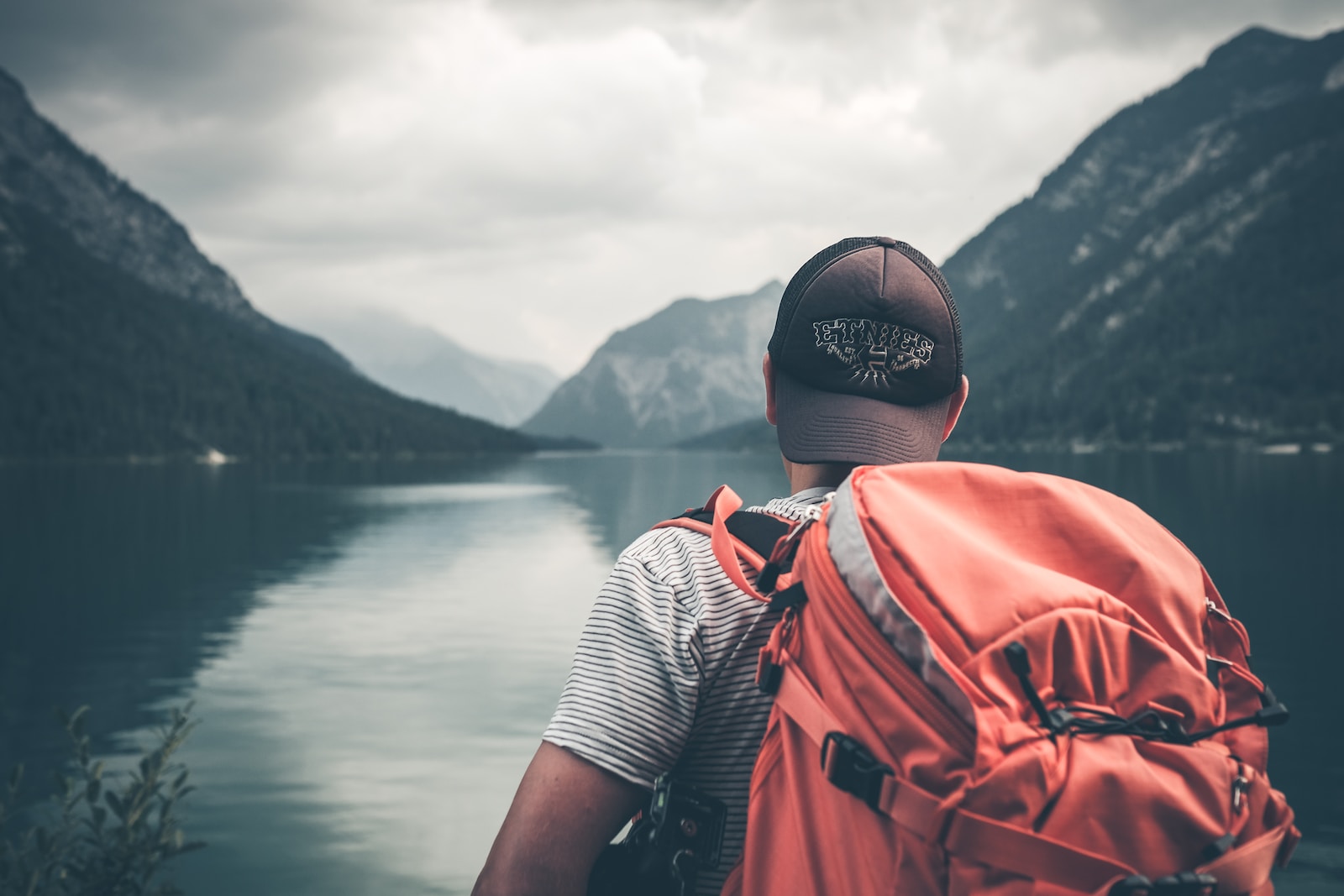Introduction
Solo travel has grown in popularity over the last few years, with more people choosing to explore the world on their own terms. This exciting endeavor offers a host of benefits, particularly for individuals who appreciate their own company and the liberty to plan their own itinerary.
However, traveling alone also presents specific challenges, particularly when it comes to safety. With this in mind, it is essential to be well-prepared and informed before setting off on a solo journey.
The concept of solo travel revolves around experiencing the world at your own pace, being in complete control of your decisions and exploring places that truly interest you. It is about stepping out of your comfort zone, meeting new people, and truly immersing yourself in different cultures.
Traveling solo offers the ultimate freedom: you’re the master of your journey, dictating when, where, and how to move forward.
However, as rewarding as it can be, solo travel is not without its challenges. Safety is a significant concern, especially in unfamiliar environments. There’s also the potential feeling of loneliness, culture shock, and the responsibility of managing every aspect of the trip by yourself.
Yet, these challenges should not deter one from the enriching experience that solo travel can offer. Instead, they should serve as a driving force to plan and execute the trip with diligence and caution.
Pre-departure planning forms the backbone of a successful and safe solo trip. This includes extensive research about your destination, creating a detailed itinerary, and ensuring you have all the necessary documents.
Along with these, you also need to pack smart, ensuring you have all the essentials you might need. This preparation beforehand not only ensures a smooth journey but also significantly reduces the risk of encountering unforeseen problems.
During the trip, staying safe requires keeping in contact with family and friends back home, exercising caution when interacting with locals, and being mindful of your surroundings, especially when exploring unfamiliar areas.
In the case of emergencies, it’s important to know the local authorities to contact and to have copies of your important documents on hand.
Financial security is another crucial aspect to consider. Protecting your money and valuables, setting up online payment accounts, and tracking all your payments can ensure you avoid financial mishaps during your trip.
Equally as important is networking with other travelers to foster companionship and mutual security. Lastly, maintaining good health while traveling is imperative, with appropriate meals, hygiene practices, and quick response to any health concerns.
As intimidating as it may seem, solo travel is an extraordinary experience filled with self-discovery and growth. By following the right safety measures and precautions, you can ensure a memorable and safe journey.
Pre-Departure Planning
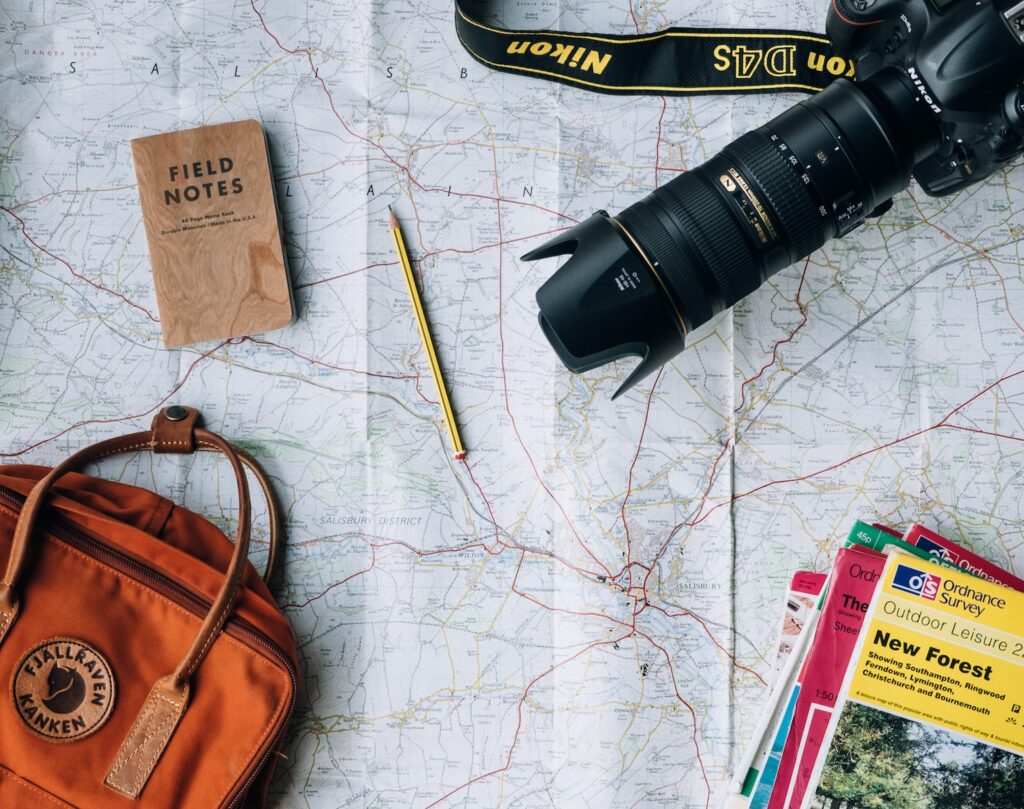
The first step in ensuring your safe solo travel begins far before you even step foot on the plane. Pre-departure planning is crucial as it sets the tone for the entire trip. Proper planning not only allows for a smooth journey but also mitigates the risks associated with traveling to unfamiliar places.
An essential element of pre-departure planning is researching your destination thoroughly. Get to know the culture, customs, local laws, and potential safety concerns of the place you are visiting. Look up common tourist scams, areas to avoid, and local customs to respect.
Check out travel blogs, guidebooks, and online forums for firsthand accounts and tips from fellow travelers. This research will not only help you blend in better with the locals but it also minimizes the likelihood of finding yourself in undesirable situations.
Next, create a detailed itinerary. This should include your arrival and departure dates, accommodation details, and a list of attractions you intend to visit.
While it’s equally important to leave some room for spontaneity, having a well-defined itinerary helps to keep your friends and family informed about your whereabouts and ensures that you have a structured plan to follow. Remember to share your plans with a trusted person back home so that they can check in on you if needed.
Acquiring necessary documents is another critical point to consider in your pre-departure planning. Ensure you have a valid passport and that it won’t expire while you’re traveling. Check if your destination requires a visa for your nationality and apply well in advance to avoid last-minute hitches.
Also, look into travel insurance – it is a safety net that can save you from unforeseen expenses like medical emergencies or trip cancellations.
Packing is an art, especially when you travel solo. You need to pack light yet ensure you have all the essentials. Make a checklist of items to pack, which should include clothing suitable for the weather at your destination, toiletries, travel documents, and any other necessities like medication or devices.
Remember to pack a first aid kit with essentials like band-aids, antiseptic wipes, and any prescribed medication. If you plan on using your credit or debit cards abroad, notify your bank about your travel plans to prevent any surprise blocks on your cards.
So, while the thrill of solo travel lies in the unexpected, having a well thought out plan before departure, can go a long way in ensuring you stay safe. A little preparation can end up saving you a lot of time, money, and stress down the line. Hence, never underestimate the power of comprehensive pre-departure planning.
Staying Safe During the Trip
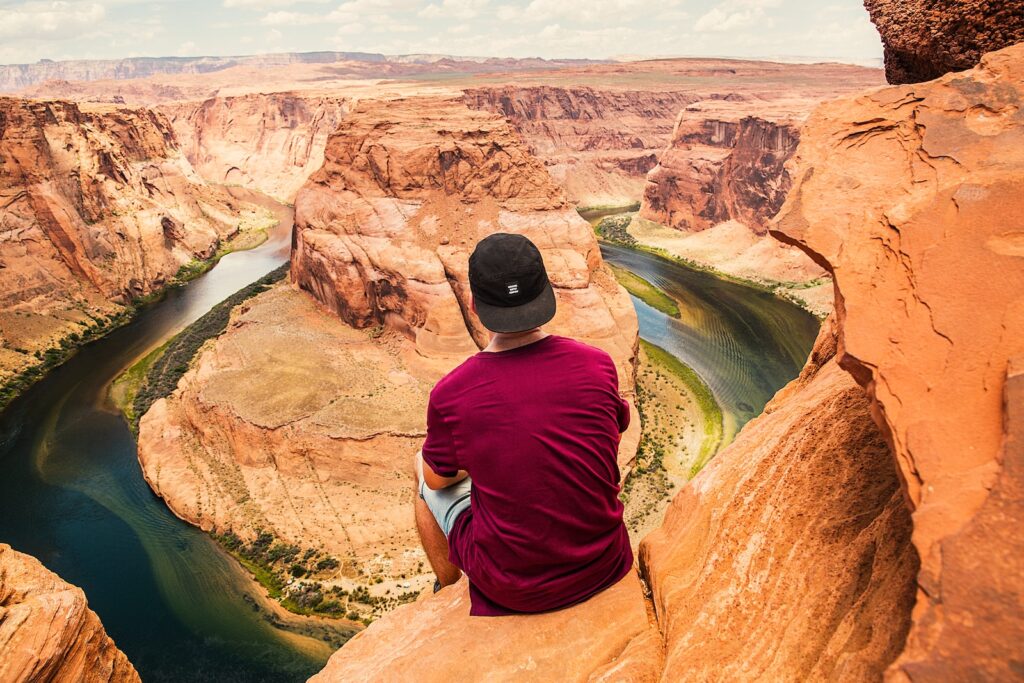
One of the highest priorities when traveling solo should always be safety. Keeping in touch with family and friends back home is an essential safety measure. With advanced technology, it’s become much easier to stay connected, no matter how remote your destination may be.
Regular check-ins not only provide peace of mind to loved ones but also ensure that someone is aware of your whereabouts at all times. Rely on video calls, instant messaging apps, and social media updates to let your network know about your travel progress.
Exercising caution when interacting with locals is another critical aspect of solo travel safety. While it’s important to immerse yourself in the local culture and establish friendships, you should remember that not everyone may have your best interests at heart.
Always trust your instincts when it comes to meeting new people; if something doesn’t feel right, it probably isn’t. Make sure to avoid revealing too much personal information or your full travel plans to people you’ve just met.
Safety precautions should also be taken when exploring unfamiliar areas. If venturing out alone, especially at night, stick to well-lit and busy areas. Research the safe and unsafe zones of the city through guidebooks or online travel forums.
Keep a map handy, either a physical copy or on your phone, to avoid appearing lost, which can make you a target to potential threats. Always remember: it’s okay to turn down an invitation or a venture if you’re not comfortable with it.
Additionally, staying aware of your surroundings is crucial. Always listen to your intuition; if a situation or a place makes you feel uncomfortable, leave immediately. Avoid distractions, such as wearing headphones or focusing too much on your smartphone, as these can make you unaware of your surroundings.
It’s also advisable to blend in with the locals as much as possible; this involves respecting the local dress codes and customs, which not only keeps you safer but also enriches your travel experience.
If you find yourself in a sticky situation, knowing how to contact the appropriate authorities can be a lifesaver. Ensure you have the local emergency numbers saved on your phone. You should also know where your country’s embassy or consulate is located and how you can reach them in case of an emergency.
In all, ensuring your safety when traveling solo requires a blend of common sense, vigilance, and preparation. It’s always better to be safe than sorry, and these safety measures will ensure that you can fully enjoy your solo adventure with peace of mind.
Handling Travel Emergencies

Traveling solo can be an exhilarating experience, but it also comes with potential risks. One of these is the possibility of facing a travel emergency. When you’re on your own, knowing how to handle emergencies can be the key to navigating through these unpredicted situations unharmed.
The first line of defense in any crisis situation, whether at home or abroad, is to know how to contact the appropriate authorities.
Each country has its unique emergency hotline. Before leaving for your trip, research and note down the specific numbers for police, ambulance, and fire services in your destination country. This information should be readily accessible so that you can act swiftly in case of any emergency.
Aside from local authorities, you should also be familiar with the contact information and location of your home country’s embassy or consulate. They can provide assistance in times of difficulty such as lost passports, legal issues, or even medical emergencies.
Another crucial aspect of handling travel emergencies is to always keep copies of your important documents. These include your passport, visa, travel insurance, and any other identification documents.
Losing your passport or ID could lead to a lot of complications, especially in a foreign country. Having copies of these documents, both physical and digital, can expedite the process of getting replacements and prove your identity when necessary.
Next, it is significant to familiarize yourself with the local laws of the country you’re visiting. Laws can vary greatly from one country to the next, and what’s considered acceptable in your home country may be illegal in another.
Take the time to research and understand the local customs and laws to avoid getting into trouble. This knowledge can also be handy if you find yourself in a serious situation and need to interact with local law enforcement.
In the event of a medical emergency, having a basic understanding of the country’s healthcare system could be a lifesaver. Find out whether your current health insurance covers international medical emergencies, and if not, consider purchasing travel insurance that does.
Knowing the location of the nearest healthcare facilities and pharmacies around your accommodation can also be handy.
Preparation is key when it comes to handling travel emergencies. Even if you never have to use any of this information, having it can provide peace of mind and allow you to enjoy your solo travel experience more fully. Always remember, it’s better to be safe than sorry on your journeys. After all, staying safe and secure is the most important aspect of any trip.
Protecting Your Money & Valuables
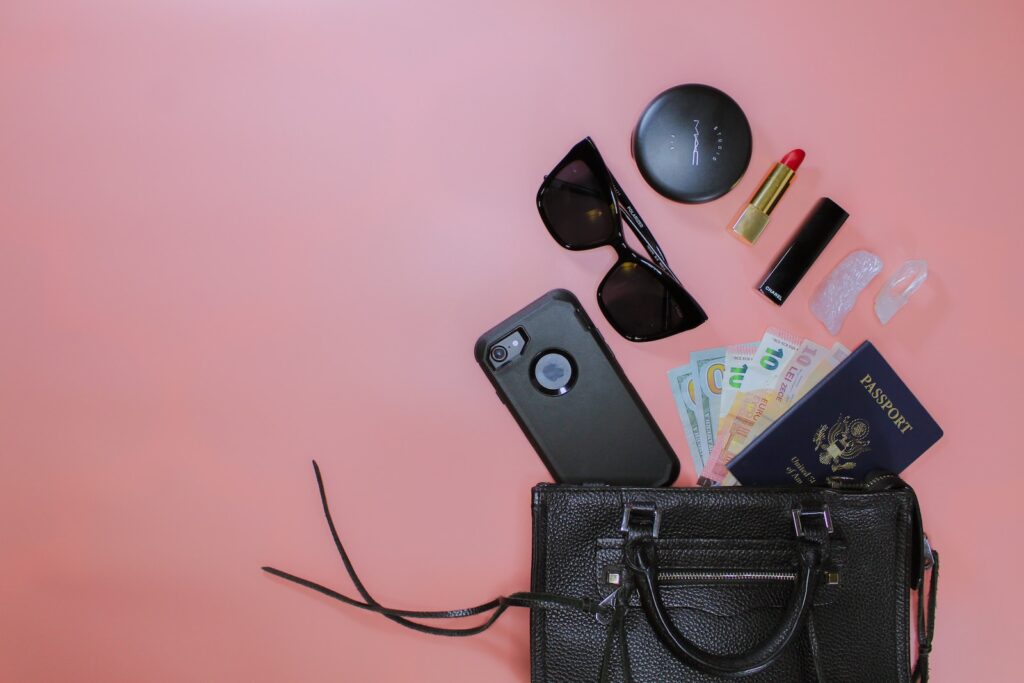
When traveling solo, being mindful about the safety of your money and valuables is paramount. Solo travelers are often seen as easy targets by pickpockets and thieves, making it crucial to adopt certain strategies and habits to ensure your financial assets and personal belongings remain secure.
One of the most effective ways to protect your money is by storing it in multiple safe places. Don’t put all your cash and cards in one place; instead, distribute them among various hiding spots. For instance, some money can be kept in your wallet, some in a money belt, and some in a hidden pouch in your backpack.
This way, even if one source is compromised, you will still have access to funds from other places. Also, consider carrying a dummy wallet with a small amount of cash and expired cards, to fool potential thieves.
Another shield against potential financial mishaps is setting up online payment accounts. Platforms such as PayPal, Venmo or Apple Pay allow you to make transactions without having cash on hand or exposing your credit card details.
These platforms also offer user protection features which add an extra layer of security. Before traveling, ensure you have a robust password and confirm that your account is linked to a secure and accessible email.
Keeping track of your transactions is equally important when it comes to protecting your money. Make sure to regularly monitor your bank and credit card statements for any discrepancies or suspicious activities.
If you notice anything unusual, contact your bank immediately. Alerting your bank about your travel plans can also prevent them from flagging your overseas transactions as fraudulent and blocking your accounts.
When it comes to valuables, the best advice is to leave them at home unless they are absolutely necessary. However, if you do need to bring items of value, ensure they are hidden and secure when not in use. Consider investing in a portable safe or using the hotel safe to store important items like your passport, electronics, and jewelry.
Lastly, get a comprehensive travel insurance policy before embarking on your journey. Ensure the policy covers theft and loss of valuables, as well as emergency healthcare. It’s also beneficial to have a policy that includes coverage for trip cancellations or interruptions due to unforeseen circumstances.
In essence, careful planning and vigilance can significantly reduce the risk of losing your money and valuables while traveling solo. By taking these steps, you can focus on enjoying your adventure, knowing your assets are well protected.
Networking with Other Travelers

Embarking on a solo trip doesn’t mean you’ll always be alone. One of the fascinating aspects of traveling is the chance to meet and interact with new people from diverse cultures. Networking with other travelers can add a whole new layer to your experience and also serve as a safety net.
Building connections with other travelers is your first step. It isn’t as daunting as it sounds. It could be as simple as striking up a conversation with your bunkmate at the hostel or joining a group tour in your destination city.
Through these connections, you can share travel tips, exchange information about safe locations, and even find companions for specific activities. Such connections can sometimes evolve into lasting friendships that transcend the boundaries of your journey.
However, it’s essential to approach these situations with an open yet cautious mind. Not everyone you meet on the road has good intentions, so always trust your instinct when forming new relationships. Try to know more about the person before you decide to travel with them or share any personal information.
This caution will help to maintain your safety while still allowing you to form meaningful connections.
Another excellent way to network is by joining travel groups or communities. These platforms provide opportunities for travelers to share their experiences, advice, and even plan meetups.
Participating in these discussions can help you pick up safety tips from people who’ve been in the same situations. Social media platforms and travel apps have numerous groups where travelers interact and support each other.
In addition to joining global groups, it’s also worth seeking out groups specific to your destination. They can provide up-to-date safety information, advice on local customs and etiquette, and opportunities to meet locals and travelers who can provide first-hand knowledge about the area.
Furthermore, local groups can help you find safe accommodation and recommend trusted tour operators, thereby adding an extra layer of security to your journey.
Networking while traveling isn’t just a fun part of the journey; it’s a strategic move that can make your trip safer and more enriching.
Connecting with other travelers gives you immediate access to a community of people who understand your situation and can provide advice, companionship, and support. So, on your next solo trip, don’t forget to network; it’s an invaluable tool to enhance your travel experience.
Staying Healthy While Traveling
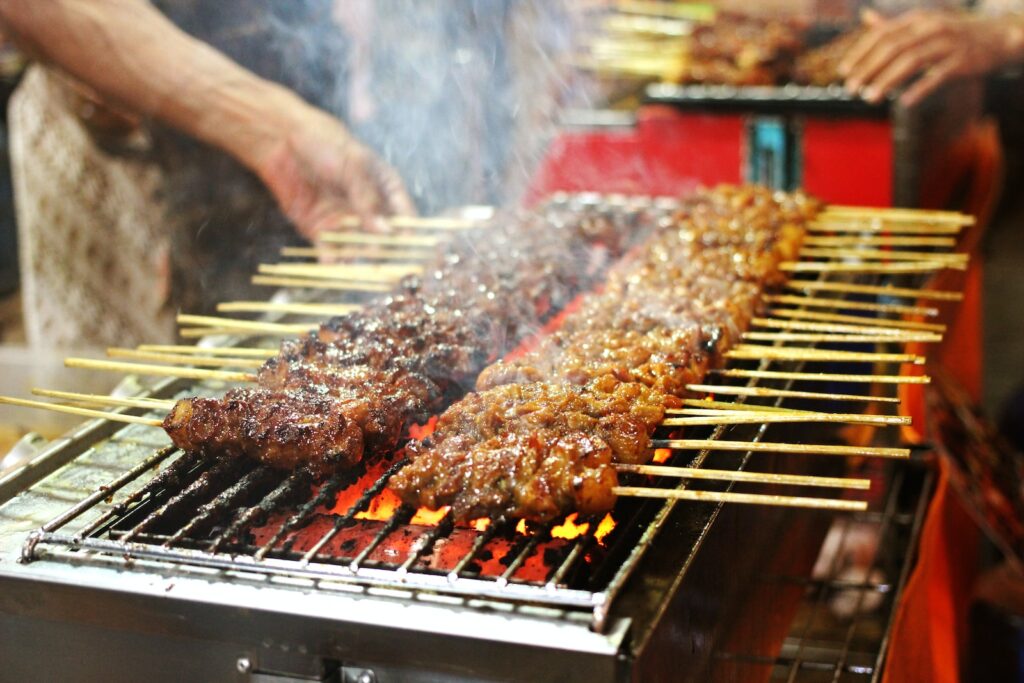
Maintaining a healthy routine while on a solo journey is as essential as securing your belongings or planning your itinerary.
With the excitement of new places and experiences, it’s easy to forget about the importance of staying well-nourished and fit. However, when you’re traveling alone, your health should be one of your top priorities.
Eating healthy meals is the first step toward ensuring that your health remains optimal. Dive into local cuisine, but do so with caution. While it’s always a thrill to try new flavors and dishes, it’s equally essential to ensure what you consume is safe and hygienic.
Choose freshly cooked, hot meals over raw or cold foods to reduce the risk of food-borne illnesses. Be sure to include a balance of proteins, carbohydrates, and fresh fruits and vegetables in your diet. Staying hydrated is also crucial. Always carry a bottle of water and avoid drinking from unknown sources.
Your hands are often the first point of contact with germs and bacteria. Therefore, cleaning your hands often becomes a crucial health safety measure while traveling.
Carry a hand sanitizer or antibacterial wipes for times when soap and water may not be readily available. Make it a habit to clean your hands before eating, after using the restroom, and after touching shared surfaces.
While we all hope for a seamless travel experience, it’s important to stay vigilant of any changes in your health. If you notice any suspicious symptoms or feel unwell, seek medical help immediately.
This might be anything from a persistent cough to discomfort in your stomach. Many countries have specific health advice lines that can guide you on the next steps to take.
In today’s interconnected world, one cannot underestimate the importance of following travel advisories, especially those related to health. Stay updated with information from trusted sources such as the World Health Organization and the Centers for Disease Control and Prevention.
These advisories can provide you with important updates on outbreaks, recommended vaccinations, or health warnings for the region you’re visiting.
Staying healthy while traveling solo isn’t just about reacting to health issues as they arise. It’s about preventive care and making health-conscious decisions throughout your journey.
Your health is your most valuable asset on any journey, and taking care of it guarantees a more enjoyable and fulfilling travel experience. So, as you embark on your exciting solo adventure, remember to keep these health tips in mind.
Final Thoughts
Traveling solo can be one of the most enriching and liberating experiences. It provides an opportunity for self-exploration, fosters independence, and broadens your worldview. However, the safety factor cannot be overlooked.
As much as it’s about enjoying and discovering new places, it’s equally important to be conscious and cautious about your safety. This article has aimed to equip you with the necessary safety tips and protocols to ensure that your journey remains secure and enjoyable.
The importance of planning before embarking on your trip has been emphasized time and again. Researching your destination, creating a detailed itinerary, acquiring necessary travel documents and packing appropriately are all part of the pre-departure planning.
Not only does this give you a clear idea about your journey, but it also pre-empts any potential complications that could arise.
Once on your journey, it’s essential to stay connected with your family and friends, exercise caution when interacting with locals and be constantly aware of your surroundings.
Familiarizing yourself with the local customs, traditions, and laws will help you in navigating your way through the place. In case of an emergency, knowing how to contact the appropriate authorities can prove to be a lifesaver.
On the monetary front, taking measures to protect your money and valuables should also be a priority. Setting up online payment accounts, tracking payments, and storing your cash and valuables in a safe place can prevent any financial mishaps. Also, having copies of your important documents can save you from a lot of trouble in adverse situations.
Networking with other travelers can add to your travel experience. Not only will you make new friends, but you can also find safety in numbers. Joining travel groups can provide a sense of security while exploring unfamiliar areas.
And lastly, maintaining good health should be a cornerstone of your travel regimen. Eating healthy, cleaning your hands often, and reporting any suspicious illnesses are crucial to staying healthy while traveling.
In conclusion, the joy of solo traveling should never be marred by safety risks. By following these tips, you can ensure a safe and fulfilling journey. Remember, being a responsible traveler doesn’t mean you can’t have fun.
On the contrary, the more prepared and secure you feel, the more you can relax and enjoy your trip. So, take the plunge, embark on that solo journey you’ve been dreaming of, but always remember to travel smart and stay safe.

